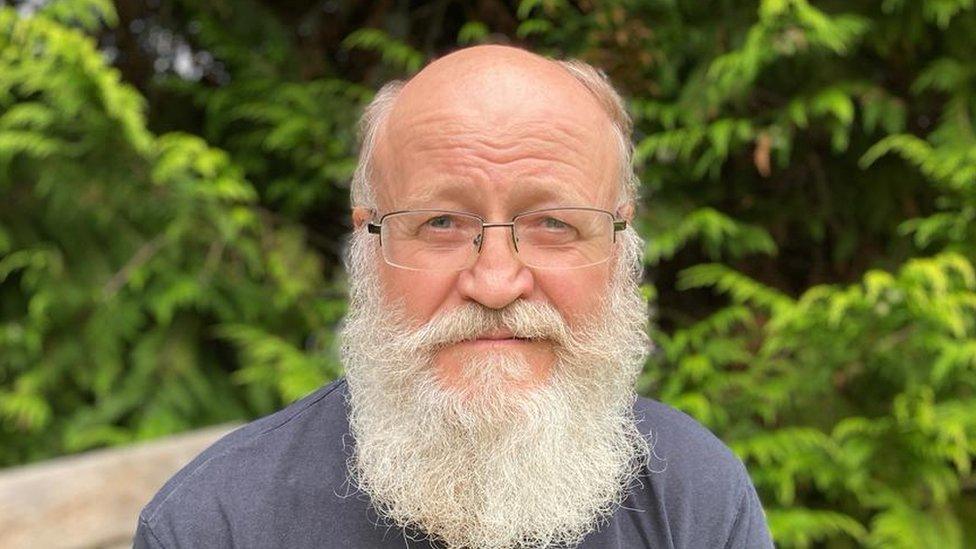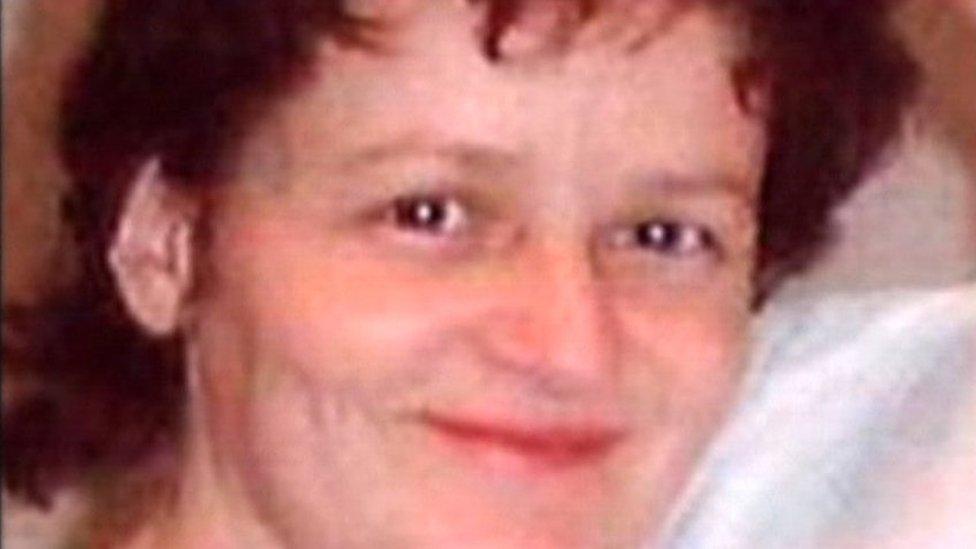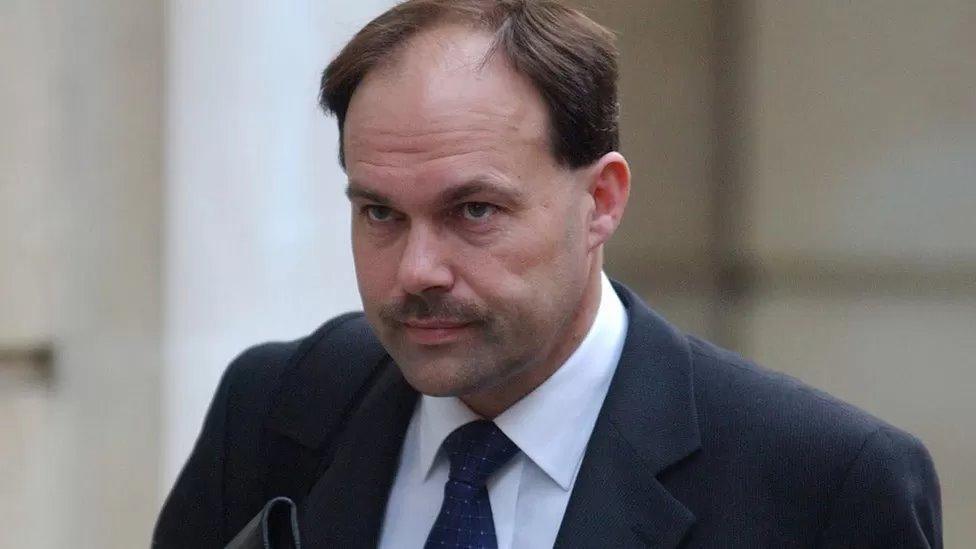Razzell parole hearings 'torture' for victims' families
- Published

Greg Worrall said prisoners should be denied hearings unless there is new information
The partner of a murdered mum says the parole board process can be torture for families and victims of crime.
Linda Razzell from Highworth near Swindon was murdered by her estranged husband, Glyn, in 2002.
He has served more than 20 years in prison and has refused to reveal how she died and where he put her body.
Linda's former partner Greg Worrall believes prisoners should not get new appeals unless they have something new to say and contribute.
"There's no remorse and no funeral and he's still spoiling the lives of many many people who love Linda," explained Mr Worrall.
The Ministry of Justice (MoJ) said it had introduced support measures.

Linda Razzell's body has never been found
Mrs Razzell, a 41-year-old mother-of-four from Carmarthenshire, was living in Highworth, Wiltshire, at the time she disappeared.
Her fiancé Greg Worrall was working at the local Honda car factory when he was phoned to say she had not collected her children from school.
Her husband was convicted after drops of Linda's blood were found in the boot of a car to which he had access.
He was convicted of murder in 2003 and has served more than 20 years in prison.

The Big Cases: The Missing Mum
Linda Razzell was murdered by her husband in 2002 - will he now reveal where her body is?

Martin Jones, the chief executive of the Parole Board, said he understood the anxiety for some victims who have been through the process multiple times.
"It doesn't stop once we say no, actually what it means is that we will have to go through that whole process again," he said.
"I think I've seen cases where the family have been through the process ten times. Can you imagine how difficult that must be?
"It's a huge worry and anxiety to them."
An MoJ spokesperson said: "Our thoughts are with the victim's loved ones and we understand that parole hearings can be distressing for them.
"That's why we have introduced measures to ensure that they are supported every step of the way, including our Victim Contact Scheme which offers families tailored support from a dedicated officer."

Glyn Razzell refused to reveal where the body of his estranged wife was
In August, Razzell told a public parole board hearing he could not reveal the location of his wife's body because he "does not know" if she is dead.
The Parole Board's report concluded there was "ample evidence that Mr Razzell is capable of wholesale deceit".
He remains in an open prison and will be eligible for another parole review in the future.
"It's a career for him now, he's controlling all these people lives from where he is sitting," explained Mr Worrall
"Every time they give him an opportunity to get that publicity it's more painful."
Greg remarried ten years ago and said he is proud that he has had people in his life to help him rebuild but the unanswered questions remain
"My wife is confused by the whole process. I've told her that's my old life and this part of my new life but it's really hard for her," he added.
Indeterminate sentenced prisoners become eligible to be considered for release after their sentence 'tariff' expires.
Razzell received a Mandatory Life Sentence in 2003 for murdering Linda. That expired in 2019.
Under current rules, when the Parole Board decide not to release a prisoner, the prisoner's suitability for release must be considered at least every two years thereafter.

Follow BBC West on Facebook, external, X, external and Instagram, external. Send your story ideas to: bristol@bbc.co.uk , external
Related topics
- Published26 September 2023
